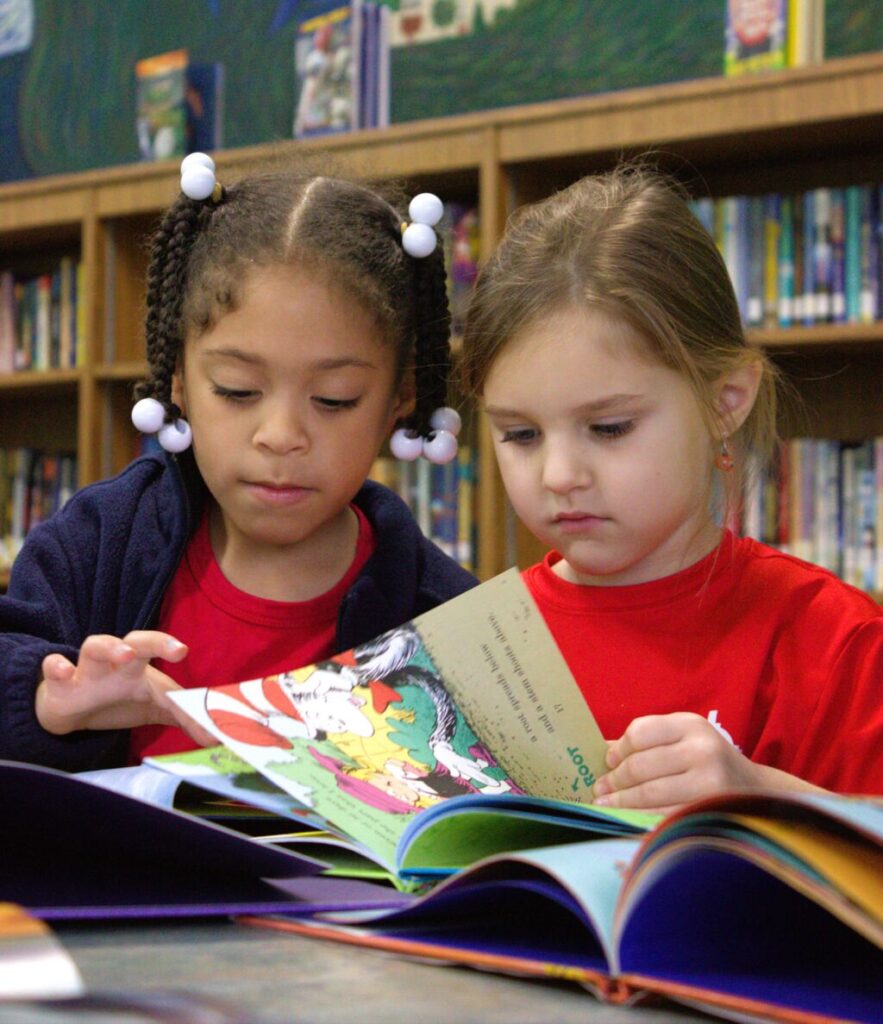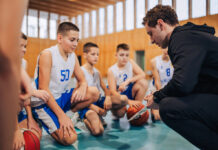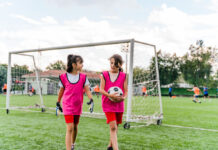
While enrollment in public school has steadily declined and charter school’s enrollment has increased, private school admission has remained steady over the past 15 years, according to Pew Research Center. Approximately 10% of all school-age students are enrolled in faith-based schools currently.
While public schools have plenty of resources, a faith-based education can offer a unique approach to learning, typically with smaller class sizes that are more individualized.
Trinity Christian School in Forest Hills, for example, has 442 students enrolled in kindergarten through 12th grade. Trinity has a 15:1 student-teacher ratio in elementary school and 13:1 in its secondary school.
According to Principal Joseph Friedly, Trinity has a wide array of sports—basketball, soccer, volleyball, track and field—and extracurricular activities, such as drama club, Jiu Jitsu, chess, robotics and American Sign Language.
Likewise, Monroeville’s Divine Mercy Academy (DMA) has 182 students in preschool through eighth grade, with a 17:1 student-teacher ratio.
“With smaller class sizes, students get more one-on-one attention, which can lead to better academic success,” says DMA Principal Nikole Laubham.
DMA students begin weekly Spanish lessons in kindergarten to understand basic vocabulary. The curriculum becomes more frequent, and naturally more challenging, each year until students are able to read and write fluently. The DMA band offers flute, clarinet, saxophone, percussion, trumpet and trombone lessons.
Anne Klavora and her husband, Shawn, have four children at DMA. Twins Gabriel and Sophia are in sixth grade, Josephine is in third and Jakob is in first grade.
“This is our second year at DMA,” Klavora says. “It means a lot to my husband and to me
to have the extra support that the school offers, on both an academic and personal level.”

Anne and Shawn Klavora say that their kids are more academically challenged than they were in public school and in a setting where the teachers are invested in their children.
“I was worried about resources in technology, or if someone needed extra help in reading or math. But that hasn’t been the case at all,” Klavora says of the transition from public school. “They have a dedicated STREAM teacher who develops lessons that build on classroom teachings. They even incubated chicken eggs last spring!”
DMA only goes through eighth grade, but students have several options for high school. Some parents choose to send their kids to public schools, with Gateway, Penn Hills and Woodland Hills being the closest districts.
Many students, however, continue their education at one of Pittsburgh’s private schools, like coed Serra Catholic High School in McKeesport or Central Catholic, an all-boys college preparatory school in Oakland.
Central Catholic educates young men from more than 50 local school districts, and has more than 140 courses including AP and honors classes and electives. Central offers a wide range of clubs, like Black Student Union, Forensics Society, Quiz Bowl, Robotics and Lasallian Ministry.
Another option is Oakland Catholic, the only all-girls Catholic school in the Pittsburgh region, which serves 45 school districts. Like Central, Oakland Catholic offers many opportunities for students, with 33 clubs and activities and 17 sports available for the 400 high school students.
“In terms of being an all-girls environment, I think we are unique,” says Director of Admissions Lydia Damoose Langley. “Because the girls are the leaders in the classroom, on their sports teams and in their clubs and activities, I have found that the students here are confident, courageous and comfortable in their environment.”
Higher education
Pittsburgh’s private schools tend to put an emphasis on postsecondary education, which is apparent through their college preparatory courses and graduation rates.
“Because we are a college preparatory school, it is pretty standard for 100% of our seniors to graduate and be accepted to a college or university,” says Langley.
Every student in Oakland Catholic’s class of 2024 was accepted into college. All but one chose to attend a four-year college; that one young woman opted to serve in the military.
Like Oakland, Trinity boasts a 100% graduation rate. Eighty percent of graduates went on to a four-year college while another 17% enrolled in a vocational school.
A meaningful, mindful approach
Trinity represents more than 130 churches and 20 different denominations. The school takes a “Classical Christian” approach to education, which—according to Friedly—is one that honors each child as made in the image of God. Trinity’s curriculum is carefully chosen to inspire awe and wonder, while developing deep thinking.
“I am passionate about Classical Christian education and very blessed to work with the wonderful faculty, staff, students and families that make up the Trinity community,” says Friedly, who is married with six children, all of whom attended the private school.
Forty-two percent of Trinity’s faculty have a master’s degree or higher. “In every class, the student’s mind is the vehicle for learning, where master teachers lead the class to seek the truth, love the good and appreciate the beautiful. Ours is a distinctly formative education that is ever mindful of the heart, soul and minds of our students,” the former pastor states.
Langley says that not only do Oakland students excel academically, but the school focuses on forming the whole person. “We have the opportunity to partake in unique opportunities, such as mission trips, regular Mass and faith-based opportunities including foreign exchange programs and service opportunities.”
Langley is originally from Northern Michigan and attended the University of Notre Dame for her undergraduate and graduate degrees. “I am not originally from Pittsburgh, but I truly wish there was an environment like this when I was in high school,” she says.
“A faith-based education does more than teach academics—it helps shape students into well-rounded individuals by blending learning with strong values,” says Laubham.
By bringing faith into the classroom, Laubham says that students are able to develop important traits like kindness, integrity and a desire to help others.
These characteristics help students grow into caring, responsible members of their community.
“Ultimately, faith-based education helps students see their education as part of something bigger, motivating them to make a positive impact in the world,” Laubham adds. “It’s about more than just knowledge; it’s about building a strong foundation for a meaningful and fulfilling life.”




